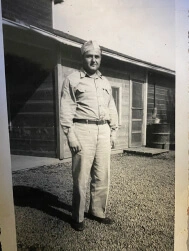BVA Hearings
If you’ve appealed a VA benefits decision, you may have felt a sense of relief when you finally received a hearing date from the Board of Veterans’ Appeals (BVA). After months, or often years of waiting, it can feel like the finish line is in sight.
But as the hearing approaches, new questions and concerns may arise. What will happen at the hearing? What evidence should you present? What if you say the wrong thing?
At ProVet Legal, we understand these fears. We’ve represented countless veterans at BVA hearings, and we know how overwhelming they can be, especially if you’ve been going it alone up to this point.
This guide will provide a roadmap for success as you work with our team to present your strongest case at your BVA hearing.
What is a BVA Hearing?
A BVA hearing is your opportunity to present your case directly to a Veterans Law Judge. These hearings are non-adversarial, meaning there’s no opposing counsel arguing against you. Instead, the judge’s role is to review the evidence and ask questions to better understand your claim.
Types of BVA Hearings
The Board of Veterans’ Appeals offers three different hearing formats to make the process as accessible as possible:
- Video Conference Hearing: This is the default option under the Appeals Modernization Act. You’ll attend a virtual hearing from your local VA regional office, or from your home, while the judge participates from a central location.
- Travel Board Hearing: In this format, a Veterans Law Judge travels to your local VA regional office to conduct in-person hearings. This option may involve a longer wait time due to scheduling constraints.
- Central Office Hearing: You can request an in-person hearing at the Board of Veterans’ Appeals office in Washington, D.C. This may be a good choice if you live nearby or are willing to travel.
Regardless of the format, the purpose and structure of the hearing remain the same. Our VA disability attorneys can help you determine which type of hearing best suits your needs and preferences.
Why Are BVA Hearings Important?
BVA hearings are an important step in the appeals process because they allow you to add new evidence to the record and provide testimony about your condition and how it relates to your military service.
This is your chance to tell your story in your own words and to clarify any misunderstandings or gaps in the evidence. A successful hearing can make the difference between a grant and a denial of benefits.
Often, during a hearing, a judge will ask questions or suggest evidence that he or she thinks might help your case. In most cases, you will have an opportunity to submit additional evidence after the hearing, if needed.
How to Prepare for Your BVA Hearing
Preparation is key to a successful BVA hearing. Here are some steps you can take to ensure you’re ready:
Review Your Claims File
We’ll carefully go through your entire claims file together, identifying any missing records, inaccuracies, or key pieces of evidence to focus on in your hearing. This in-depth review will ensure we have a comprehensive understanding of your case and can develop the most effective strategy.
Often, by the time the hearing gets scheduled, it has been several months or even years since you filed the appeal, and you may not remember what evidence has already been submitted or even what claims are pending before the Board. We can review your file with you, and help pinpoint your strongest arguments and evidence, and help you prepare your testimony.
Gather Additional Evidence
If there is any additional evidence that could support your claim, we’ll work with you to obtain and submit this information. This may include:
- Medical records: We’ll help you gather any outstanding medical records, such as treatment notes, test results, or expert opinions, that demonstrate the severity and impact of your condition.
- Buddy statements: These are written statements from fellow service members, friends, or family who have witnessed the effects of your condition firsthand. They can corroborate your account of in-service events or attest to the daily challenges you face due to your disability.
- Other supporting documents: Depending on your specific case, other evidence such as service records, employment records, or expert vocational assessments may be relevant.
Our team will help you identify what types of evidence could strengthen your case and assist you in gathering it.
Prepare Your Testimony
We’ll guide you through the types of questions the judge is likely to ask and help you practice your responses. We’ll work with you to identify specific examples of how your condition impacts your daily life and ensure you feel confident and prepared to articulate your experiences persuasively.
Attend Your Hearing with Confidence
On the day of your hearing, we’ll be right there with you, whether in person or via video conference. We’ll handle the opening statement, present the key evidence, and advocate for your interests before the judge. You can focus on providing honest, impactful testimony while we tackle the legal heavy lifting.
The most important step in this process is reaching out to our team at ProVet Legal. With our experience, knowledge, and commitment to fighting for the benefits you’ve earned, you can face your BVA hearing with confidence. Don’t hesitate to contact us to start preparing for success.
What to Expect at Your BVA Hearing
On the day of your hearing, you’ll have the opportunity to present your case to the Veterans Law Judge. Here’s a general overview of what to expect:
- Introductions. The judge will introduce themselves and any other staff present, and will ask you to state your name for the record.
- Oath. You’ll be asked to swear or affirm that your testimony will be truthful.
- Opening statement. Your attorney will deliver a prepared opening statement outlining your case, the key evidence, and the legal arguments for why you’re entitled to benefits.
- Guided Testimony. Your attorney will ask you a series of prepared questions that you have discussed before the hearing, and help make sure your testimony covers all the key aspects of your story, and that ensure that you stay on topic. If you go down a rabbit hole, we will gently guide you back to the critical parts of your story that will help the judge understand your case.
- Judge’s questions. The judge may ask you a few follow-up questions about your condition, your service, and the evidence in your file. Answer honestly and provide as much detail as possible.
- Closing statement. After all testimony is complete, your attorney will make a closing statement, reiterating the key points and legal arguments, and explaining why the evidence supports the grant of benefits in your case.
- Next steps. The judge will explain what will happen next and when you can expect a decision. Usually, the file gets sent off for transcription, and a copy of your sworn testimony will be added to the file. You may be provided a period of time to submit additional evidence or written argument, and then to case will be assigned back to a judge to issue a decision.
Remember, the hearing is your opportunity to be heard. Don’t be afraid to speak up, ask for clarification if you don’t understand a question, and take the time you need to provide complete answers. We work hard to make sure you are prepared and feel comfortable before the hearing so there are no sudden surprises.
We’ll handle the legal arguments, evidence presentation, and advocacy to give you the best chance at a successful outcome.
How Long Do BVA Hearings Take?
BVA hearings typically last between 30 minutes to an hour, depending on the complexity of your case and the number of questions the judge has. However, there’s no set time limit, and some hearings may be shorter or longer.
The Potential Outcomes of Your BVA Hearing
After your hearing concludes, the Veterans Law Judge will review all the evidence, testimony, and arguments presented before making a decision. There are three primary rulings the judge may issue:
- Remand: If the judge determines that the regional VA office made errors in processing your claim or that additional evidence is needed, they may remand your case. This means your claim will be sent back to the Regional Office with instructions to correct the errors or gather the necessary evidence. While a remand can feel like a setback, it’s often an important step in ensuring your claim receives fair consideration.
- Denial: If the judge concludes that the evidence does not support your claim for benefits, they may issue a denial. This isn’t necessarily the end of the road, however. You have the right to appeal the BVA decision to the U.S. Court of Appeals for Veterans Claims (CAVC) within 120 days. At this stage, it’s especially crucial to have experienced legal counsel to navigate the complex court system. Our attorneys at ProVet Legal are able to represent you in Court, if needed.
- Grant: If the judge finds that the evidence substantiates your claim, they will grant your request for benefits. This is the best-case scenario and means you’ll start receiving the compensation you’ve earned. However, it’s important to review the decision closely, as the judge may have granted some issues but not others. If the judge grants your claim, the case still gets sent back to the Regional Office to implement the Board’s decision. The Regional Office will often be responsible for assigning a particular rating and effective date.
In cases where your appeal involves multiple issues, the BVA will provide a separate ruling on each one. Some issues may be remanded, while others could be denied or granted.
Regardless of the outcome, your ProVet Legal attorney will thoroughly review the decision with you and advise you on the next steps. If an appeal to the CAVC is necessary, we’ll be ready to fight for you at this higher court.
The key is to not lose hope, even if you receive a denial or remand. Our experienced team has helped countless veterans successfully navigate the appeals process, and we’re committed to pursuing every avenue for the benefits you deserve.
What if You Need to Reschedule Your BVA Hearing?
Life can be unpredictable, and there may be times when you need to request a new hearing date due to a scheduling conflict or unexpected emergency. If you find yourself in this situation, here’s what you need to know:
Requesting a Rescheduled Hearing
If your hearing is more than two weeks away, you’ll need to send a written request to the Board of Veterans’ Appeals explaining why you need a new date. Your request should include:
- Your name
- The VA file number for your appeal
- The reason for requesting a new hearing date
You can send your written request to the Board via mail or fax. If your hearing is less than two weeks away, you’ll need to file a formal motion detailing the reason for your rescheduling request.
Providing “Good Cause” for Rescheduling
In your request, you’ll need to demonstrate “good cause” for rescheduling. Examples of “good cause” may include:
- Illness of you, your representative, or a witness
- Difficulty obtaining necessary records
- Unavoidable scheduling conflicts
A judge will review your request and decide whether your hearing can be rescheduled. You’ll receive a notice in the mail informing you of the judge’s decision.
Maintaining Your Place in Line
If you’re concerned about losing your place in line by rescheduling, don’t worry. The Board of Veterans’ Appeals schedules hearings in docket order, which is the order in which they receive hearing requests. When you reschedule, you’ll keep your original docket date, and the Board will work to schedule your new hearing for the earliest available date.
Choose ProVet Legal for Your BVA Hearing
At ProVet Legal, our mission is to fight for the benefits veterans like you have earned through your service and sacrifice. We know the ins and outs of the BVA appeals process, and we’re committed to putting that knowledge to work for you.
Our veterans’ law attorneys will take the time to understand your situation, gather the evidence you need, and craft a compelling case on your behalf. We’ll be by your side every step of the way, from preparation through the hearing itself.
Don’t face your BVA hearing alone. Contact us today for a consultation and learn how we can help you get the benefits you deserve.








